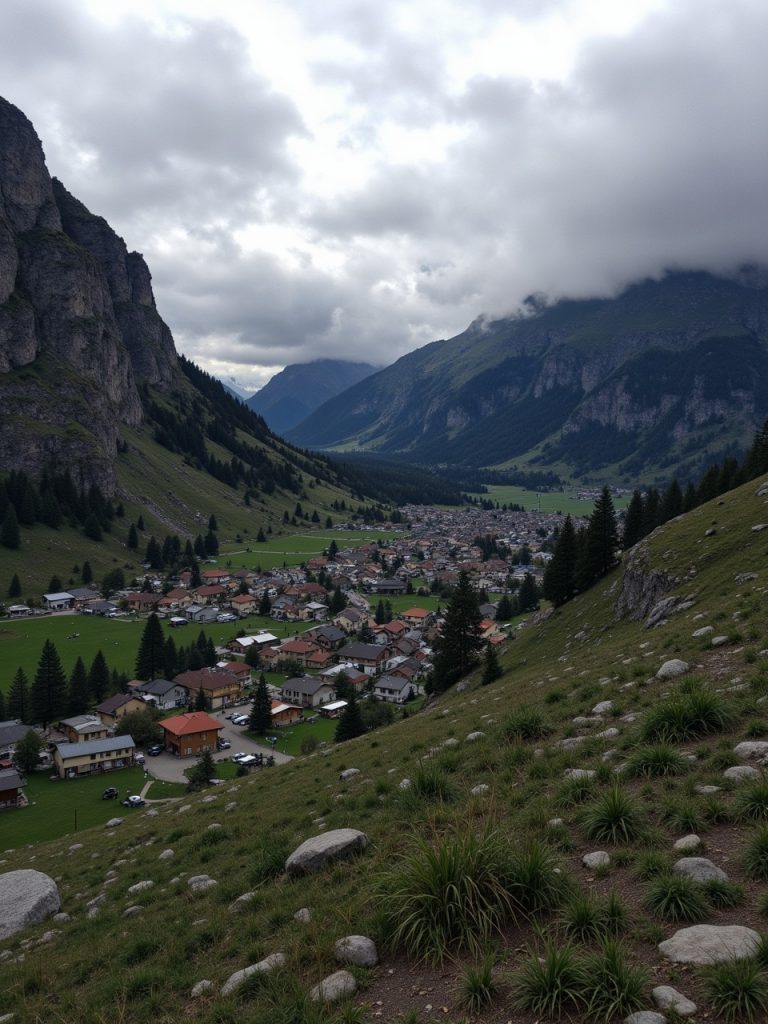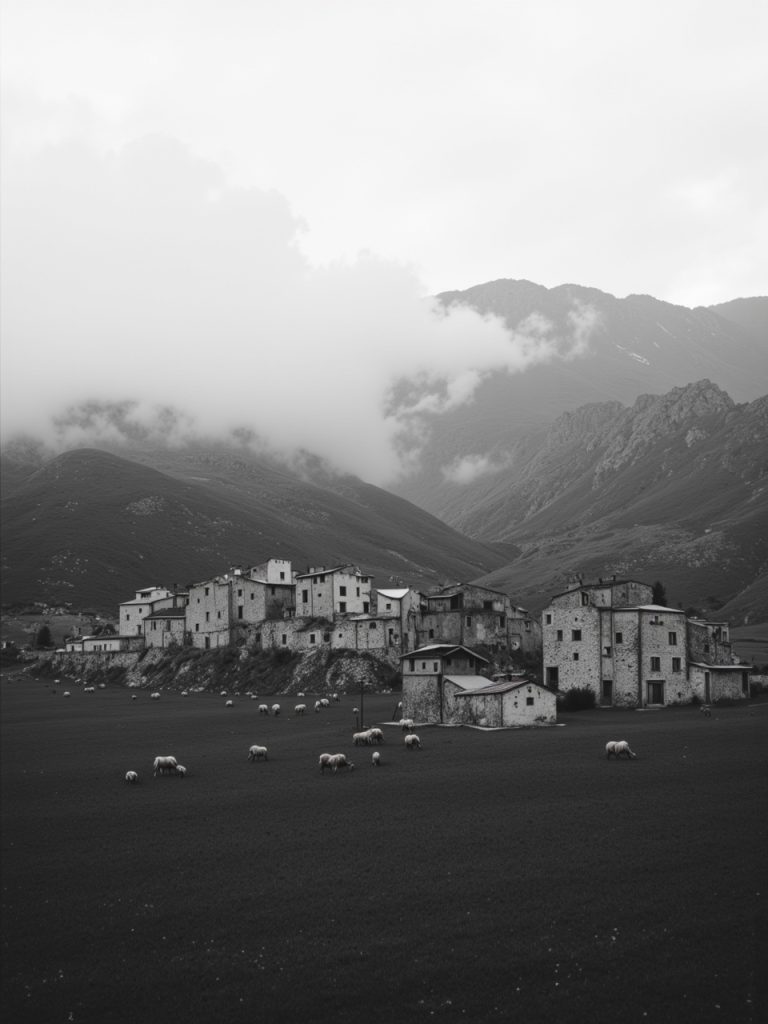Andorra: A Promising Destination for Cryptocurrency Investors?

Tired of hefty cryptocurrency taxes diminishing potential profits? For those involved in the dynamic world of digital assets, the allure of jurisdictions with favorable tax policies is undeniable. Nestled high in the Pyrenees Mountains between France and Spain, the Principality of Andorra is increasingly capturing the attention of cryptocurrency investors seeking a new base of operations . Beyond its well-established reputation for winter sports and tax-free shopping on certain goods, Andorra is emerging as a potential haven for individuals and businesses operating within the digital economy.
Pay 0% Tax Legally — Start Your Tax-Free Strategy Today
Even in low-tax jurisdictions, most investors still overpay.
Our elite partner tax law firms specialize in advanced legal structures that can reduce your effective tax rate to as low as 0%, fully compliant, audit-ready, and tailored to your profile.
Crypto-friendly. International. Proven.
This article aims to provide a comprehensive analysis for cryptocurrency investors considering emigration to Andorra. It will delve into the various facets of relocating to this unique European microstate, including the requirements for obtaining residency, the intricacies of the Andorran tax system with a particular focus on the treatment of digital assets, the landscape of banking and financial institutions, a detailed examination of the cost and overall quality of life, and an overview of the evolving legal and regulatory framework governing cryptocurrency activities within Andorra. Furthermore, this analysis will draw comparisons with other jurisdictions that are also considered attractive for cryptocurrency investors, offering a nuanced perspective to aid in informed decision-making.
Laying the Groundwork: Understanding Andorran Residency for Investors
For individuals considering a move to Andorra, understanding the available pathways to legal residency is paramount. The Andorran immigration system offers several options for foreigners seeking to establish themselves within the principality, with the most relevant for investors being active and passive residency. Additionally, for those whose professional activities are conducted remotely, the digital nomad visa presents another potential avenue.

Active residency is generally tailored for individuals who intend to become actively involved in the Andorran economy, either as employees or by establishing their own businesses within the country. This type of residency typically necessitates a minimum physical presence of at least 183 days per year, aligning with the requirement to establish Andorra as the primary center of one’s professional activities.
In contrast, passive residency is specifically designed for individuals who possess sufficient financial resources or generate income from sources outside of Andorra. This category is particularly appealing to retirees, investors, and those with substantial personal wealth who do not plan to seek employment within Andorra. A significant advantage of passive residency is its considerably less demanding physical presence requirement, mandating a minimum stay of only 90 days per calendar year. Given the nature of cryptocurrency investment, which can often be managed remotely, passive residency is likely the most pertinent option for the investor profile this report addresses.
For cryptocurrency investors whose primary mode of operation is remote work providing services to entities located outside of Andorra, the digital nomad visa could also be a viable option. This relatively new category caters to the increasing trend of remote professionals seeking residency in countries offering attractive living conditions.
Passive Residency in Detail
For a cryptocurrency investor contemplating emigration to Andorra, the passive residency pathway warrants a closer examination due to its alignment with the potential for remote income generation and wealth management. This route entails specific investment, income, and physical presence requirements, along with other standard prerequisites.
A fundamental aspect of obtaining passive residency in Andorra is meeting the investment criteria. Generally, applicants are required to make a minimum investment of approximately €600,000 in Andorran assets. This investment can take various forms, offering flexibility to suit different financial preferences. As outlined in the research, eligible investment options include acquiring real estate within Andorra, investing in financial instruments issued by Andorran entities, purchasing shares in Andorran resident companies, or holding debt instruments issued by Andorran public administrations . Another avenue for investment is through unnumbered securities held with the Andorran National Finance Institute (INAF) . Notably, there is a provision for a reduced minimum investment of €400,000 if the funds are specifically directed towards the Fons d’Habitatge d’Andorra, a social housing fund.

In addition to the primary investment, passive residents are also obligated to place a non-interest-bearing deposit with the Andorran Financial Authority (AFA) as a demonstration of financial solvency . This deposit typically amounts to €47,500 for the main applicant, with an additional €9,500 required for each dependent family member included in the residency application . It is important to note that this deposit is refundable once the residency permit is relinquished or the residency status is changed . This refundable nature effectively reduces the long-term capital outlay associated with obtaining residency.
Beyond the investment, applicants for passive residency must also provide evidence of sufficient income to support themselves and their dependents without needing to seek employment in Andorra . The generally accepted income threshold is equivalent to 300% of the Andorran minimum wage per year for the primary applicant, with an additional 100% of the minimum wage required for each dependent . To illustrate, in 2024, the minimum annual income requirement for a single applicant was approximately €49,545.72. It is worth noting that the specific income requirements may be subject to annual adjustments, with snippet indicating a figure of at least 300% of the Andorran minimum wage for 2025. Furthermore, some sources indicate a requirement to show a bank balance of at least €38,000 as proof of financial self-sufficiency . These financial prerequisites ensure that passive residents contribute to the Andorran economy through their investments and spending without placing a strain on the local labor market or social welfare system.
A significant advantage of the passive residency route, particularly for individuals whose income is generated internationally, such as cryptocurrency investors, is the minimal physical presence requirement. Passive residents are only required to spend a minimum of 90 days within Andorra each year. This is a stark contrast to the 183-day minimum stay for active residents, offering considerable flexibility for those who may have business interests or residences in other parts of the world.
In addition to the core investment, income, and physical presence requirements, there are several other standard prerequisites for obtaining passive residency in Andorra. These include providing a criminal record clearance certificate from the applicant’s country of origin, nationality, and any other country where they have resided . Applicants must also undergo a medical examination in Andorra to ensure they meet the required health standards. Furthermore, it is mandatory to secure private health insurance coverage within Andorra. Proof of accommodation is also essential, which can be demonstrated through either owning a property in Andorra or having a valid long-term rental contract. The application process also necessitates the submission of certified copies of passports and other identification documents for the applicant and any dependents, along with marriage and birth certificates as applicable . Some financial institutions may also request a bank recommendation letter to further verify the source of the applicant’s funds.
Active Residency
While passive residency is likely the more suitable option for many cryptocurrency investors, active residency presents an alternative for those who intend to actively manage or establish cryptocurrency-related businesses within Andorra. This pathway typically involves incorporating a local company, often a Societat Limitada (SL), with the applicant holding at least 20% of the company’s shares and serving as an administrator. The financial commitment for active residency includes a higher mandatory deposit with the AFA of €50,000. A key difference from passive residency is the requirement for a more substantial physical presence, with active residents needing to reside in Andorra for a minimum of 183 days per year . Depending on the specific category of active residency being pursued, such as the self-employment program, applicants may also be required to submit a detailed business plan outlining their intended activities.
Application Process
The process of applying for residency in Andorra based on investment generally follows a structured series of steps. Initially, prospective residents need to gather all the necessary documentation, ensuring it meets the specific requirements of the chosen residency type . A crucial step involves opening a bank account with an Andorran financial institution, which will be used for holding the required investment and demonstrating financial capacity. Once the bank account is established, the applicant proceeds to make the necessary investment in accordance with the chosen option and places the mandatory deposit with the AFA.

The complete application dossier, including all supporting documents, must then be submitted in person to the Andorran Immigration Department (Servei d’Immigració d’Andorra). As part of the process, applicants are typically required to undergo a medical examination in Andorra to confirm they meet the health standards for residency. If all conditions are met and the application is approved, the applicant will be issued their Andorran residence permit card . The entire process, from initial document preparation to the issuance of the residence permit, can take approximately two months. The initial residence permit is typically valid for a period of two years and is subsequently renewable for varying durations depending on the residency type and the length of time the individual has been a resident .
Decoding the Tax Advantage: How Andorra Treats Cryptocurrency
Andorra has strategically positioned itself as a jurisdiction with one of the most attractive tax systems in Europe, a key factor drawing the attention of international investors and entrepreneurs . A cornerstone of this appeal is the low maximum personal income tax rate, capped at just 10% . This competitive rate is further enhanced by a progressive tax structure that includes a tax-exempt threshold for the first €24,000 of annual income . Income falling between €24,000 and €40,000 is subject to a tax rate of only 5%, with the 10% rate applying to earnings exceeding €40,000 . When compared to the significantly higher income tax rates in neighboring countries like Spain and France, the Andorran system offers a substantial financial advantage for residents.
For cryptocurrency investors, a particularly relevant aspect of the Andorran tax system is the treatment of capital gains derived from digital assets. In Andorra, capital gains realized from cryptocurrency transactions are generally taxed at a maximum rate of 10% . This rate is notably competitive when juxtaposed with the tax rates on crypto gains in other European nations. For instance, France typically taxes capital gains from cryptocurrencies at around 30%, while in Spain, the rates range from 19% to 26% depending on income brackets . Furthermore, Andorra offers a personal income tax exemption on the first €3,000 of savings income, which can potentially be applied to profits generated from cryptocurrency trading. This provides an initial tax-free allowance for investors.
Another favorable aspect for cryptocurrency traders in Andorra is the tax treatment of cryptocurrency exchanges. Unlike some jurisdictions that consider each swap between different cryptocurrencies a taxable event, Andorra generally does not tax these direct exchanges. However, it is important to note that if cryptocurrencies are used to purchase goods or services, any capital gain realized at the time of the transaction is subject to income tax. Adding to the attractiveness for experienced crypto traders, Andorra does not mandate the use of the First-In, First-Out (FIFO) accounting method for calculating capital gains. Instead, other justified and legally valid methods, such as Last-In, First-Out (LIFO), are accepted, offering greater flexibility in tax planning .

Beyond the specific taxation of cryptocurrencies, Andorra boasts other advantageous tax features that benefit residents. There is no wealth tax levied on the total assets of individuals, nor are there any inheritance or gift taxes. Income generated from movable capital, such as interest earned on bank accounts, is treated favorably under the Andorran tax system. The first €3,000 of savings income is exempt from taxation. Gains from the sale of listed shares and units in investment funds are also fully exempt from personal income tax. Dividends received from companies incorporated in Andorra are entirely tax-free for residents. While dividends from foreign companies are subject to a 10% tax rate, this is still competitive compared to many other countries . Additionally, capital gains realized from the sale of shares in companies may be exempt or taxed at a reduced rate of up to 10%, depending on the percentage of ownership and the duration the shares were held . For individuals transferring their tax residence to Andorra from Spain, there is no “exit tax” imposed on their cryptocurrency holdings, further facilitating the relocation process .
To provide a clearer comparison, the following table outlines the capital gains tax rates on cryptocurrencies in Andorra and several other jurisdictions popular among crypto investors:
| Country | Capital Gains Tax Rate on Crypto | Specific Conditions |
| Andorra | 10% (maximum) | €3,000 personal exemption may apply; exchanges between cryptos generally not taxed. |
| Spain | 19% – 26% | Progressive rates based on income brackets. |
| France | ~30% | Flat tax rate (prélèvement forfaitaire unique) including social contributions. |
| Portugal | 28% (short-term) / 0% (long-term) | Short-term (held < 1 year) taxed at 28%; long-term (held > 1 year) generally exempt. |
| Malta | 0% (as store of value) / 35% (trading) | 0% if crypto is considered a store of value; 35% business income tax for traders. |
| Switzerland | 0% (private investors) / Wealth Tax | Generally 0% for private investors; annual wealth tax applies. |
This comparison highlights the competitive tax environment that Andorra offers for cryptocurrency investors.
Banking in Andorra: Finding Crypto-Friendly Financial Institutions
The relationship between traditional banking institutions and the burgeoning cryptocurrency sector has often been marked by initial caution. In Andorra, this trend was also evident, with banks initially displaying some reticence towards engaging with cryptocurrency transactions. However, the landscape is evolving, and some Andorran banks have begun to adapt to the growing interest in digital assets. These institutions are increasingly incorporating personnel with expertise in blockchain technology and demonstrating a greater willingness to onboard cryptocurrency holders as clients. There is also a growing recognition and valuation of Over-The-Counter (OTC) cryptocurrency trading and the potential for cryptocurrency investment funds within the Andorran financial sector.
The primary banking institutions operating in Andorra include Morabanc, Creand (formerly known as Crèdit Andorrà), and Andbank. While other banks such as Banc Sabadell d’Andorra, Banca Mora, Banc Internacional, Banca Privada d’Andorra, and CaixaBank Andorra have been mentioned in various contexts , the financial sector in Andorra is largely dominated by these three main players. Morabanc and Creand offer a range of services encompassing both commercial and international private banking, catering to a diverse clientele . Andbank, on the other hand, primarily focuses on international private banking services.

For foreigners, including cryptocurrency investors, seeking to open a bank account in Andorra, the process can be more involved than in some other jurisdictions and often necessitates professional guidance. The general steps typically include selecting a suitable bank that aligns with the individual’s financial needs, providing comprehensive identification documentation such as a valid passport and proof of address, successfully navigating the bank’s stringent compliance procedures which involve Know Your Customer (KYC) and Anti-Money Laundering (AML) checks, and in many cases, attending an in-person meeting at the bank’s premises in Andorra . Following these steps, the bank will conduct its due diligence process, which can take some time, and upon approval, the account opening agreement can be finalized . The documentation typically required from non-resident applicants includes a valid passport or national identity card, proof of residential address, evidence of financial solvency (e.g., recent payslips or financial statements), detailed documentation substantiating the source of the funds to be deposited, and often, a bank reference letter from the applicant’s current bank. For cryptocurrency investors, providing clear and verifiable documentation regarding the origin and traceability of their digital assets is of paramount importance. While the standard procedure often involves an in-person visit, some financial institutions, such as Jetonbank, may offer the possibility of opening an account remotely.
While Andorran banks are becoming more open to cryptocurrency holders, they still maintain rigorous compliance standards and will require thorough verification of the legitimacy of funds, particularly those derived from cryptocurrency activities. Investors seeking private banking services, which typically involve higher minimum deposit or investment thresholds, may find institutions more readily equipped to handle cryptocurrency-related wealth . Some banks are also showing an increasing interest in facilitating Over-The-Counter (OTC) cryptocurrency trading and offering access to cryptocurrency investment funds for their clients .
Despite the potentially complex account opening process, banking in Andorra offers several advantages. It provides an alternative to the traditional European banking system, potentially offering diversification benefits . Deposits in Andorran banks are insured up to €100,000 per depositor by the government, providing a level of financial security . The principality is home to experienced private banking managers, often available at more competitive rates compared to those in other financial centers . Andorran banks typically offer multi-currency accounts and may provide favorable exchange rates for international transactions . They also utilize modern banking technologies, including robust internet banking platforms, allowing clients to manage their finances remotely.
The Cost of Living the Andorran Dream
For cryptocurrency investors considering a move to Andorra, understanding the cost of living is a crucial aspect of their decision-making process. Generally, Andorra is considered to have a cost of living that is more affordable than its neighboring countries, France and Spain, and is often compared to major Spanish cities like Madrid or Barcelona. Estimates for the average monthly cost of living for a single adult in Andorra vary, but figures ranging from €1,000 to €3,000 have been cited, depending on lifestyle and spending habits .
Housing costs represent a significant portion of the overall cost of living. Rental prices in Andorra have seen a notable increase in recent years. As an example, studio apartments might range from €700 to €1,200 per month, while one-bedroom apartments could cost between €1,000 and €2,000. For larger two-bedroom apartments, rental prices can range from €1,500 to €3,000 or even higher, and houses or chalets can command rents starting from €2,000 and potentially exceeding €10,000 per month, depending on size, location, and amenities . It is also common for landlords to require an upfront payment equivalent to four months’ rent to cover the first month, agency fees, and a security deposit. For those considering purchasing property, the median price per square meter for apartments can range from around €3,786 to €6,641 depending on the parish, while houses might range from €3,857 to €6,422 per square meter. Overall, while not the cheapest European country, Andorra’s real estate market is generally considered more affordable than that of other tax havens like Monaco and Switzerland.
Daily expenses such as food and groceries are generally competitive in Andorra, despite the country’s limited agricultural output . Monthly food costs for a single person are estimated to be in the range of €150 to €250. Utility costs for a standard apartment, including electricity, water, gas, and internet, typically fall between €100 and €150 per month. Notably, water consumption is often not directly billed. Electricity costs in Andorra are relatively low compared to other European nations . Transportation costs are also reasonable, with attractively priced gasoline and diesel. Public transportation is efficient and inexpensive, with monthly bus passes costing around €30 to €70. Healthcare costs vary depending on residency status. Active residents contribute to the public healthcare system (CASS) at an annual cost, while passive residents need private health insurance, with minimum annual premiums around €2,000.
Quality of Life Beyond the Balance Sheet
Beyond the financial considerations, Andorra offers a high quality of life that appeals to many expatriates. The principality boasts an exceptionally strong safety and security record, consistently ranking among the safest countries in the world. This low crime rate provides residents with a sense of peace and security. Andorra’s healthcare system is also highly regarded internationally, often ranked among the best globally for its accessibility and quality. Residents enjoy a high life expectancy, reflecting the quality of the healthcare and the generally healthy lifestyle prevalent in the country. For families with children, Andorra offers a unique education system with free and compulsory schooling from ages 6 to 16. The system is notable for the coexistence of three public education streams: Andorran, French, and Spanish, providing a diverse range of options for parents.
Andorra’s environment and lifestyle are also major draws. The country is nestled in the Pyrenees Mountains, offering breathtaking natural beauty and numerous opportunities for outdoor activities such as skiing, hiking, and cycling. Approximately 90% of Andorra’s territory is comprised of mountains, forests, and green spaces. The climate is characterized as a Mediterranean high mountain climate, with around 300 days of sunshine annually. Many residents appreciate the slower pace of life and the lower stress levels compared to larger, more urbanized countries.
Navigating the Legal Maze: Andorra’s Cryptocurrency Regulations
Andorra is actively developing its legal framework to accommodate the growing digital economy, including the cryptocurrency sector . A significant piece of legislation in this endeavor is Law 24/2022, the Digital Assets Act, which governs the digital representation of assets through cryptography and blockchain technology. This law aims to position Andorra as a favorable destination for foreign companies and investors involved in new technologies . While cryptocurrencies are not legal tender, the Act provides a regulatory framework for their use and operation .
The Digital Assets Act covers various aspects of the digital asset ecosystem, including the issuance, exchange, custody, and intermediation of cryptocurrencies . It establishes licensing requirements for entities operating in this space, along with measures to prevent money laundering and protect consumers . The Act also addresses decentralized finance (DeFi) protocols and provides a framework for stablecoins. Notably, it lays the groundwork for the creation of the Andorra Digital Exchange (“AndorraDex”), a planned trading platform for digital assets . The Andorran Financial Authority (AFA) is the primary regulatory body overseeing digital asset activities and requires participants to register with them .
Andorra places a strong emphasis on anti-money laundering (AML) regulations within the cryptocurrency sector. Virtual asset service providers are considered reporting entities and must comply with relevant legislation. Individuals and businesses dealing with cryptocurrencies need to be able to demonstrate the traceability and legal origin of their funds, as banks will require thorough documentation. The regulatory landscape is still evolving, with potential future developments including tax exemptions for cryptocurrency gains reinvested within Andorra. Currently, Andorra does not classify blockchain technology, tokens, and cryptocurrencies as financial assets.
Andorra in the Global Crypto Landscape: A Comparative Analysis
Andorra presents a compelling proposition for cryptocurrency investors seeking a new domicile. Its relatively low capital gains tax rate on cryptocurrencies (10%) is a significant advantage, particularly when compared to the higher rates in many other European countries . The absence of wealth and inheritance taxes further enhances its appeal. The developing regulatory framework provides increasing legal clarity for the digital asset sector.
Moreover, Andorra offers a high quality of life, characterized by safety, excellent healthcare, and a stunning natural environment, often at a lower cost of living than comparable jurisdictions. The flexibility in calculating capital gains on cryptocurrencies, allowing methods beyond just FIFO, is another benefit for traders. The potential for future tax exemptions on reinvested crypto gains adds to the long-term attractiveness. Additionally, the low electricity costs in Andorra could be advantageous for cryptocurrency mining operations, although the specific regulations for such activities need to be carefully examined .
However, there are also considerations to keep in mind. The banking sector in Andorra is still navigating its relationship with cryptocurrencies, and policies can vary between institutions. Opening a bank account, especially for non-residents with cryptocurrency-derived wealth, can be a complex process requiring thorough documentation. Rental costs in popular areas have increased in recent years. As a small country, the local market for cryptocurrency-related businesses might be initially limited, although the planned Andorra Digital Exchange could help address this .
When compared to other jurisdictions favored by cryptocurrency investors, Andorra offers a unique mix of benefits. Portugal has been attractive due to its historically tax-free long-term crypto gains, but recent changes have introduced taxation on short-term gains and other crypto income . Malta, known as “Blockchain Island,” offers no capital gains tax on crypto held as a store of value but taxes trading income at a higher rate . Switzerland generally does not tax capital gains for private crypto investors but imposes a wealth tax . The UAE (Dubai) offers zero income and capital gains tax on crypto within its free zones. Singapore also does not tax capital gains on cryptocurrencies . Each jurisdiction presents its own set of advantages and disadvantages, and Andorra stands out as a compelling option for those seeking a balance of low taxation and high quality of life within a European setting.
Real Experiences: Insights from Crypto Investors Who Made the Move
While specific, widely publicized case studies of cryptocurrency investors emigrating to Andorra are not extensively available, but there are indicators suggesting a growing trend. Reports mention an increase in applications for tax residency from cryptocurrency traders and holders, drawn by Andorra’s low taxation and developing crypto environment. The presence of a burgeoning community of crypto entrepreneurs and blockchain technology professionals in Andorra is also noted.
The fact that MoraBanc offers a Bitcoin investment fund and a digital asset custody wallet suggests that there is a demand for and availability of crypto-related financial services within the country. The general attraction of Andorra’s high quality of life and safety for expatriates, including those in the tech and finance industries, further supports the idea of cryptocurrency investors choosing Andorra as their new home . While direct testimonials might require further networking within expat and crypto communities in Andorra, the overall signs point towards a growing interest and migration of individuals from the cryptocurrency sector to the principality.
Making the Decision: Key Takeaways and Considerations for Crypto Investors
Emigrating to Andorra presents a potentially attractive proposition for cryptocurrency investors seeking a favorable tax environment and a high quality of life. The low capital gains tax rate on cryptocurrencies, coupled with the absence of wealth and inheritance taxes, offers significant financial advantages. The developing regulatory framework for digital assets provides increasing legal clarity, and the overall cost of living is reasonable compared to many other European nations. Furthermore, Andorra boasts a strong safety record, excellent healthcare, and a stunning natural environment.
However, prospective emigrants should also be aware of certain considerations. The banking sector in Andorra is still evolving its approach to cryptocurrencies, and navigating account opening procedures may require patience and professional assistance. While generally lower than in neighboring countries, rental costs in popular areas have been rising. The regulatory landscape for digital assets is still developing, and investors should stay informed about any future changes.
Pay 0% Tax Legally — Start Your Tax-Free Strategy Today
Even in low-tax jurisdictions, most investors still overpay.
Our elite partner tax law firms specialize in advanced legal structures that can reduce your effective tax rate to as low as 0%, fully compliant, audit-ready, and tailored to your profile.
Crypto-friendly. International. Proven.
Before making the move, cryptocurrency investors should carefully consider the size and nature of their portfolio and trading activities, their long-term financial and lifestyle goals, and the importance of proximity to major financial centers. Understanding the evolving regulatory environment and being prepared for potentially complex banking procedures are also crucial. Assessing the budget for the cost of living, including housing and healthcare, is essential for financial planning.
It is highly recommended that potential emigrants consult with tax advisors specializing in international taxation and cryptocurrency, as well as legal professionals in Andorra to fully understand the residency and regulatory requirements. Researching and contacting Andorran banks to discuss their specific policies on cryptocurrency clients is also a vital step. Exploring the real estate market and considering a visit to Andorra to experience the quality of life firsthand can further inform the decision-making process.
In conclusion, while Andorra offers numerous compelling advantages for cryptocurrency investors considering emigration, thorough due diligence and professional guidance are essential to ensure a successful and beneficial relocation.